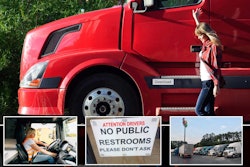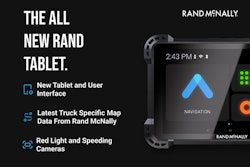If the massive number of tornadoes wreaking havoc in the Midwest weren't enough of a danger for truckers and others, the Atlantic hurricane season gets under way Saturday and forecasters are predicting an above average number of storms.
The National Oceanic and Atmospheric Administration's National Weather Service forecasters at the Climate Prediction Center say the outlook for the season, which spans from June 1 to November 30, includes an 85% chance of an above-normal season. There is a 10% chance of a near-normal season and a 5% chance of a below-normal season.
NOAA is forecasting a range of 17 to 25 total named storms (winds of 39 mph or higher). Of those, 8 to 13 are forecast to become hurricanes (winds of 74 mph or higher), including 4 to 7 major hurricanes (category 3, 4 or 5; with winds of 111 mph or higher). Forecasters have a 70% confidence in these ranges.
The predicted above-normal activity is due to several factors, including near-record warm temperatures in the Atlantic Ocean, development of La Nina conditions in the Pacific, reduced Atlantic trade winds and less wind shear, all of which tend to favor tropical storm formation.
If your driving takes you along the Gulf Coast -- Texas to Florida -- or along the Atlantic Seaboard -- Florida to Maine -- there are some things you ought to be doing to prepare for the possibility of being on the road when a hurricane is forecast:
- Be scrupulous about performing comprehensive pre- and post-trip inspections so you find and correct any mechanical problems
- Be prepared for delays and rapidly changing road conditions caused by a storm or mandatory evacuation orders
- Keep your fuel tanks topped off
- Don't hesitate to stop if winds become too high, but be mindful of where you park so you avoid trees and power lines
- Doublecheck to be sure your pickup and drop-off locations are open and functioning before arriving
- Be sure you have food and supplies onboard in case you're forced to stop and wait out a storm
- If you don't already have one, be sure to download at least one reliable and reputable weather app on your smartphone
- Follow the National Hurricane Center on Facebook and/or X (formerly Twitter)
- Be sure you know your company's policies for and expectations of drivers during emergency conditions









